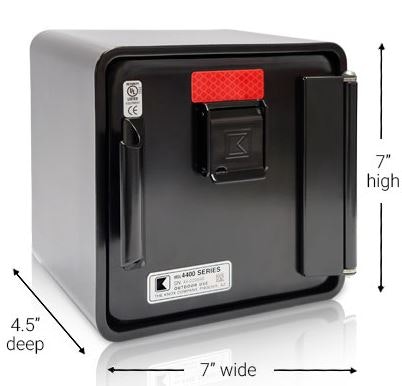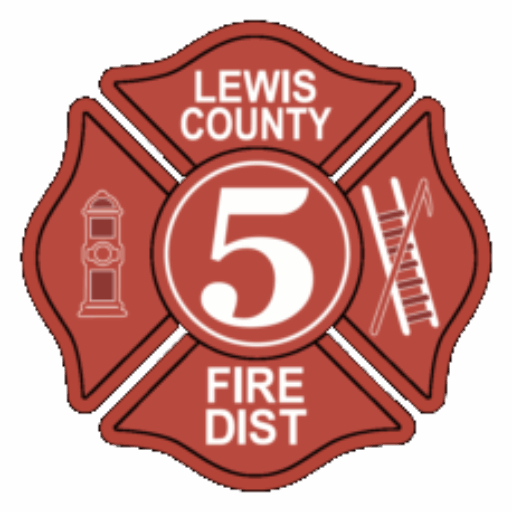IN CASE OF EMERGENCY, ALWAYS DIAL 911
Your Safety Headquarters: Prevention & Preparedness
Proactive community risk reduction is a cornerstone of modern fire service. This section is your central hub for actionable advice, safety tips, and resources to protect yourself, your family, and your property. Empowering you with knowledge is key to a safer community.
Fire Safety in Your Home
Smoke Alarms: They Save Lives!
- Install inside each bedroom, outside sleeping areas, and on every level (including basements).
- Mount on ceilings (4″ from wall) or walls (4-12″ from ceiling). Avoid corners.
- Test monthly. Replace batteries every 6 months (or per 10-year unit). Replace entire alarm every 10 years.
- WA law mandates alarms in new construction, rentals, and homes at sale.
- LCFD5 supports local smoke detector programs. Contact us for info.
Carbon Monoxide (CO) Alarms
- Required by WA law in most homes. Install outside sleeping areas, near bedrooms, and on each level.
- CO sources: improperly used grills/generators, gas ranges for heating, unvented heaters. Generators 20ft from buildings.
- Test monthly. Replace batteries annually. Replace unit every 5-7 years (or per mfg.).
Home Fire Escape Plans (Have 2 Ways Out!)
- Draw a map, plan 2 ways out of every room. Ensure exits are clear. Designate an outside meeting place.
- Practice drills twice a year (day & night). Consider those needing assistance.
Other Key Home Safety Tips
Candles: Keep away from combustibles. Never leave unattended.
Cooking: Never leave unattended. Keep flammables away. Smother grease fires (NO WATER).
Heating: Space heaters 3ft from combustibles. Ensure ventilation for fuel heaters.
Electrical: Avoid overloading outlets. Inspect cords.
Wildfire Preparedness for Rural Areas
Create Defensible Space
- Immediate Zone (0-5ft): Use non-combustible materials (gravel). Remove flammable vegetation/mulch.
- Intermediate Zone (5-30ft): “Firewise” landscaping. Mowed lawns. Prune trees (remove ladder fuels). Space trees.
- Extended Zone (30-100ft+): Reduce fuel density. Remove dead plants/litter. Thin small conifers.
Harden Your Home
- Install 1/8-inch metal mesh over eaves/vents/under decks.
- Use fire-resistant roofing and siding. Dual-paned windows, intact screens.
Evacuation Preparedness
Plan multiple escape routes. Assemble an emergency kit.
Understand “Ready, Set, Go!” evacuation levels.
Outdoor Burning Regulations & Burn Bans
Preventing accidental fires from outdoor burning is key. Regulations can be complex.
Allowable: Generally natural vegetation grown on property. NO garbage, lumber, etc.
Residential/land-clearing burning is BANNED in Napavine’s Urban Growth Area (UGA).
Burn barrels are ILLEGAL statewide.
Outside UGAs (unincorporated Lewis Co.): Free permit usually required from Lewis Co. Community Development (360-740-1146) for natural vegetation.
Forest-related burning: DNR is permitting authority.
This link provides the most current burn ban status for your address.
Emergency Preparedness in Lewis County
Be ready for various disasters (flooding, earthquakes are significant local threats).
Lewis County Alert
Official emergency notification system. Sign up for critical info on public safety, road closures, flood warnings, evacuations.
Disaster Supply Kits
Assemble a kit: water, non-perishable food, first aid, meds, flashlight, batteries, radio for several days.
Family Emergency Plan
Develop a plan: escape routes, meeting places (nearby & out of neighborhood), out-of-area contact.
County Resources
Lewis County Department of Emergency Management (DEM) is your primary county resource.
Requesting Inspections or Information
For non-emergency safety questions, fire safety inspection requests (if offered), plan reviews, or information about permits LCFD5 may be involved with (e.g., special events, new construction, fire system installations), please contact our main business line during office hours. We are here to help guide you through safety requirements and processes.
Contact: (360) 262-3320 (Mon-Fri, 8 AM – 5 PM)
KNOX® Rapid Access System
Locked doors and secured entry points can delay emergency response. Enable first responder rapid access by installing a secure UL listed KnoxBox that houses entry keys and access cards.

There are two types of series, Commercial and Residential. The residential KnoxBox are for only residences. Businesses or large properties will need to stick with the commercial series.
We recommend them for all properties, especially those with fire alarm monitoring systems, medical alerting systems or frequent patients.
When starting your search on the links below, be sure to select Washington State, and type our agency in as Lewis Co Fire Dist #5 – NAPAVINE, WA
The below link directs you to the Lewis Co Fire Dist #5 – NAPAVINE, WA product order page with our correct agency already entered. This link provides product information, pricing and the number for Knox Customer Service. Anyone in our response area can submit their order online.
Lewis County Fire District 5 asks that all property owners with electric gates consider installing a 3502 Key Switch on an easily accessible mounting plate when installing their gate. Most gates can be easily retrofitted to add one by simply contacting the installer or an electrician.
If you prefer to send in your order you can download the appropriate order form and mail it directly to Knox.
